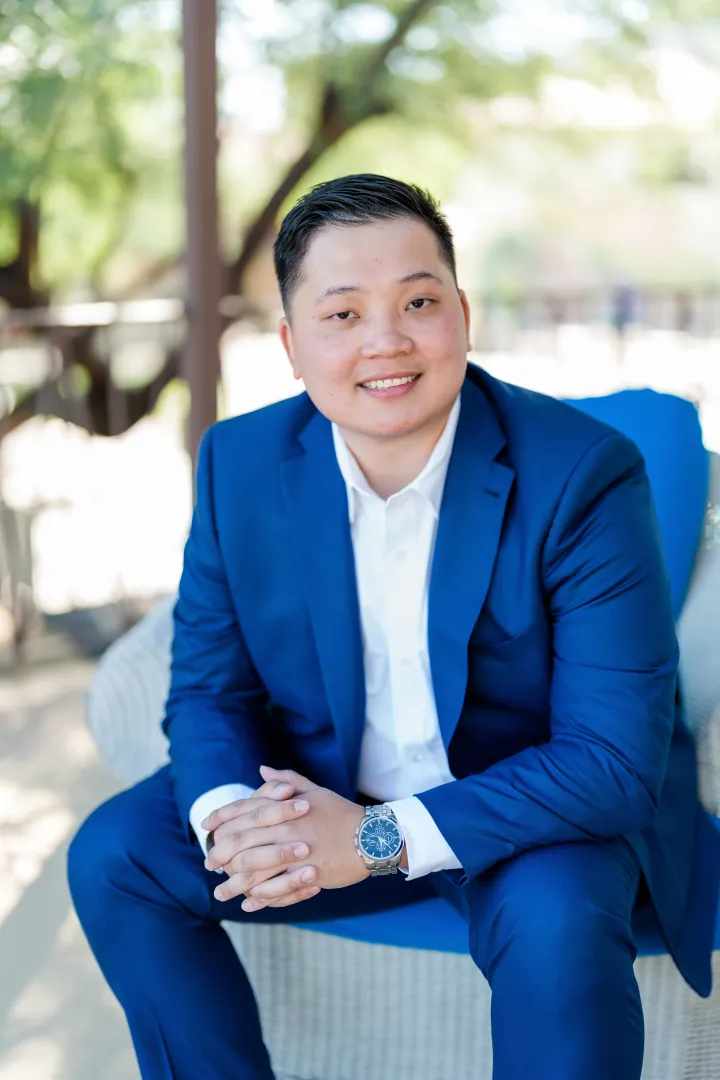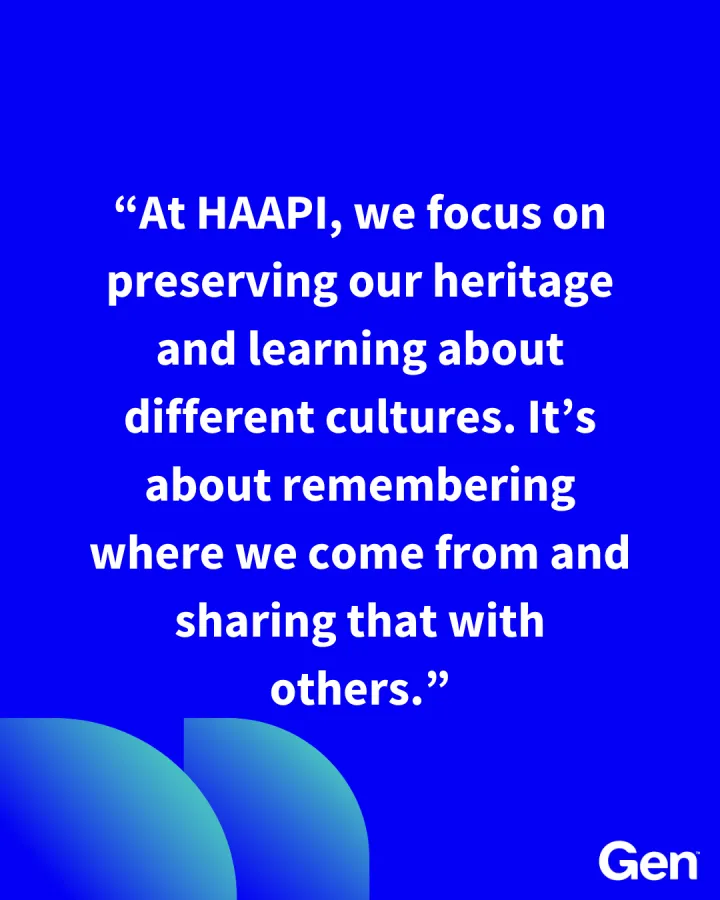From Saigon to Arizona - An American Dream Rooted in Vietnamese Culture


May marks Asian American Pacific Islander (AAPI) Heritage Month. Around the world, and especially at Gen, this community has and continues to make an impact. To celebrate and honor our AAPI community at Gen, we’re highlighting one Genovator in particular: Kenny Pham. Kenny not only leads our HAAPI community but also has an inspiring vision for what an employee resource group should be.
Read a bit about him, his history and his heritage.

Q: Tell us a little bit about your background.
Kenny: I came to the United States when I was three years old. We moved directly to Arizona because that’s where my grandparents were. I was born in Ho Chi Minh City, Vietnam, which to many is known as Saigon before the war. My grandma immigrated to the United States with my uncle and aunt as boat people, escaping from the North in the 1980s. They landed in a refugee camp, likely in Thailand or Laos, and where they applied to immigrate to different countries. Fortunately, my grandma, uncle, and aunt was accepted to be immigrated into the United States due to my grandpa's credentials as a Vietnamese soldier who served alongside the US during the Vietnam War.
After my mom got married at 20, she had me. Seeking a better life for us, we immigrated to Arizona to live with my grandmother, uncle, and aunt.
One of my earliest memories is sitting on the airplane with my mom, pointing out the window at other airplanes that I wanted to fly on. We arrived in the United States with whatever belongings we could fit into our bags and less than $100 in our pockets. We felt like we had made it sitting on that plane.
Q: Do you still speak your native language at home?
Kenny: Yes, my mom primarily speaks Vietnamese. She knows some English, too. She lives with me and my wife, who is American, and they’re able to understand one another and communicate. Also, living with your parents is very typical in Asian culture.
Q: What other traditions do you keep alive from your Vietnamese culture?
Kenny: My grandmother’s devout Catholicism shaped our family’s traditions, leading us to find comfort and connection in attending Vietnamese Catholic mass. This practice not only grounds me in my faith, but also serves as a bridge to my cultural heritage, a journey I can share with my wife, who is of Polish and Czech origin.
Additionally, living in Arizona, where the Vietnamese community is smaller compared to places like California and Texas, it’s harder to stay connected to our heritage. Despite the distance from bustling Vietnamese communities, we find solace and continuity through our food.
Food speaks a lot within different cultures, especially in Vietnamese culture, where it varies significantly depending on the region — North, Central, or South Vietnam.
The same type of food can be very different based on regional cooking styles. For example, pho, the most common Vietnamese food, varies greatly. In the North, pho uses more smashed-up beef, chives, and onions, and it's often served with bread for dipping. In the South, the focus is on the broth, which is made from beef bones simmered for days, and the meat is extremely tender. Different regions use different types of meat and preparation methods, allowing you to trace the roots of people based on their cooking.
Through food, we honor our heritage, tracing our lineage with each simmering bowl of pho. It’s more than just a meal; it’s a communion with our past, a celebration of who we are, and a legacy we pass on to our children with love and pride.

Q: So, you started HAAPI, the employee resource group. Tell us more about it.
Kenny: About one year ago, I started HAAPI with a vision to underscore the importance of Diversity, Equity, and Inclusion (DEI) communities beyond just underrepresented groups. In the tech industry, Asian Americans constitute a significant portion of some companies, sometimes even the majority. Yet, there’s often an oversight that such groups don’t require dedicated spaces. However, DEI isn’t exclusive; its about fostering inclusivity and resources for all employees, irrespective of their background. For me, HAAPI represents a platform for GEN Employees, offering insights into their own culture and others’.
While HAAPI is rooted in preserving heritage and fostering cultural understanding, its doors are open to all who seek to broaden their horizons. Its about building a community where mutual learning and sharing thrive, safeguarding our heritages from being forgotten.
Moreover, HAAPI serves as a sanctuary for open dialogue and support, providing a safe space for those who need it.
We don’t measure the success of our group by headcount or the number events we throw, but by the support we’re able to offer. If through HAAPI, I can enlighten even one person about my culture, I consider it a triumph.
Q: What would you tell a prospective employee about HAAPI and Gen?
Kenny: Gen is a place where everyone belongs. DEI is not just about underrepresentation. It’s about making sure there is a support system for everyone. If you feel like you don’t belong, we need to know so we can address it. At HAAPI, we focus on preserving our heritage and learning about different cultures. It’s about remembering where we come from and sharing that with others. Even if you’re not of Asian descent, you can still join HAAPI to learn and share.
My main goal is to preserve our heritage and share it with others before it’s lost. Whether you live and breathe your heritage or are just learning about it, HAAPI is a community where you can share and learn. It’s about inclusion and support, regardless of your background.